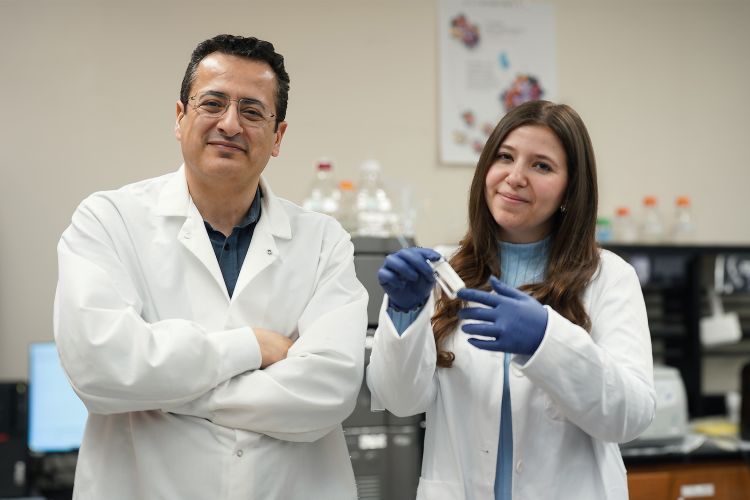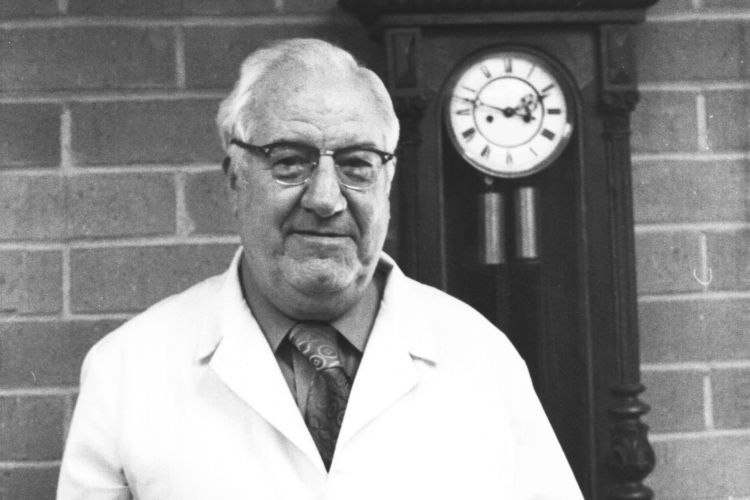Breadcrumb
Pacific awarded San Joaquin County Opioid Safety Program Consultant contract

Rajul A. Patel, PharmD, PhD professor of pharmacy practice and director of Pacific’s Medicare Part D Outreach Clinics
A team of pharmacy faculty from the Thomas J. Long School of Pharmacy, University of the Pacific has been awarded $105,000 over three years to support local efforts to reduce the number of opioid- and drug-related overdoses and deaths in California. As the San Joaquin County Opioid Safety Program Consultant, their role will include focusing on statewide strategies involving strengthening collaboration, promoting safe prescribing, building community capacity, expanding access to medication-assisted treatment, increasing access to Naloxone, reducing access to and negative consequences of illicit drugs, addressing priority populations in high-risk settings, promoting public education and awareness.
The school has extensive experience translating data into actionable information gained through decades of community-focused health care outreach events and initiatives.
“The school will have a very large footprint throughout the County with our work on this contract,” said Dr. Rajul A. Patel, professor of pharmacy practice, director of Pacific’s Medicare Part D Outreach Clinics, which have been serving community members in the Central Valley since 2007. “We will be seen as a crucial member of the community in helping address critical public health issues and better engender the trust of those in the community.”
The opioid epidemic was declared a public health emergency in 2017. “While we have made strides in improving the numbers, it is by no means over,” said Dr. Carly A. Ranson, assistant professor of pharmacy practice. “With the additional unknowns introduced with the COVID-19 pandemic and the shelter in place orders, things have become more difficult to identify and address. This places an importance in ensuring matters such as the opioid epidemic are given adequate time and effort to not only maintain the ground we have gained, but also to continue to improve where needed.”
Temporary policies put in place during the pandemic have also exacerbated existing issues.
“Shelter in place due to COVID-19 concerns has led to an increased reliance on opioids,” said Dr. Adam M. Kaye, clinical professor of pharmacy practice. “Fewer opportunities to be seen by a physician has also added to the use and misuse of street opioids. These medications are often more powerful than most commonly dispensed prescription opioids and may contain fentanyl, which is among the most powerful opioids available.”
In 2019, the CDC published findings revealing that those over 65 years of age had the largest relative change for all opioid-involved overdose deaths. In a typical year, the Medicare Part D Outreach Clinics host approximately 15 health fairs, serving approximately 1,700 patients per year with more than 90 percent of clinic attendees being 65 years of age or older. In addition, for the past two years, Pacific doctor of pharmacy students facilitate the screening, distribution and counseling of Naloxone, a medication that can reverse the effects of an opioid overdose. Since 2019, an opioid overdose risk assessment tool has been administered to more than 800 patients and more than 60 boxes of intranasal Naloxone were distributed.
Through the outreach events, students have real-life interactions with patients, witness first-hand the impact of opioid abuse and are involved in strategies to address this address this critical public health issue. The team approaches the County contract from a two-pronged approach: how can it positively impact the community and how they can involve students.
“Once we fully understand the true scope of responsibilities we intend to fully integrate students into initiatives whenever possible,” Dr. Patel said.
One of the County’s objectives is to increase availability and access to medication-assisted treatment (MAT), the use of FDA-approved medications, in combination with counseling and behavioral therapies, to provide a treatment of substance use disorders, including opioid addiction. The team will leverage the University’s relationship with St. Joseph’s Medical Center, San Joaquin General Hospital and other partners to establish transitions of care guidelines for those moving from institutional care settings to state-approved MAT programs.
Dr. Kaye regularly presents and publishes peer-reviewed articles on opioid therapy and abuse. Dr. Kaye has worked with local prescribers to develop pain agreements between the prescriber and their patient. These efforts have greatly improved communication between doctors and patients and resulted in the adoption of safer opioid prescribing patterns and opioid use by patients.
“We hope to make a difference in the lives of those battling substance abuse,” Dr. Kaye said. “We look forward to finding solutions to the growing problem of inconsistent opioid prescribing in the future.”
One of the school’s ongoing initiatives, which aligns with the Country’s priorities, is the promotion of safe disposal of unused, unwanted or expired medications. Through the Medicare Part D Outreach Clinics, more than 1,500 drug takeback envelopes have been distributed to community members free of charge. For the last three years, free medical sharps containers were also distributed. The school will further these efforts by collaborating with local pharmacies, community partners and business owners to promote and expand the number of sites for safe drug and sharps disposal.
Funding for this contract is provided by the Centers for Disease Control and Prevention and the Substance Abuse and Mental Health Services Administration, through an agreement with the Department of Health Care Services.





